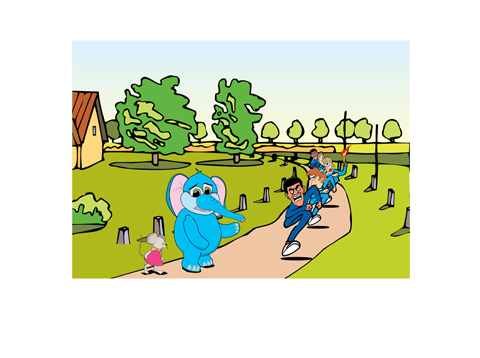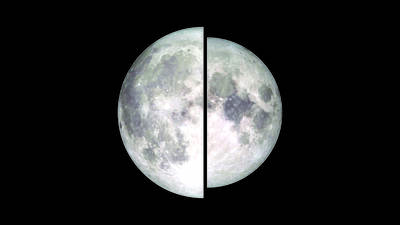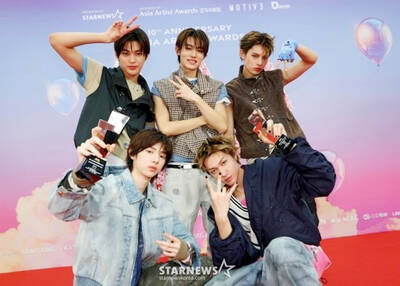wherever she goes. Sometimes they get into some very sticky situations.
見見老鼠凱薩琳和大象馬克。凱薩琳非常勇敢又喜歡冒險,但馬克的個性十分害羞,對許多事情都感到害怕。不過,朋友都喜歡黏在一塊兒,所以凱薩琳走到哪兒,馬克就會跟到哪兒。有時候,他們也會碰上非常棘手的情況...
The long way round 漫漫長路
“Phew, its hot,” Kathleen sighed.
“Well, at least it isn’t raining!” Mark said cheerfully. He was really enjoying their holiday in Pakistan. “What shall we go see next?”

“Maybe we should head over to the Shah Faisal Masjid mosque,” Kathleen suggested. “It’s supposed to be one of the biggest in the world.”
“Cool! We can check out the huge silver globe statue on the way,” Mark said.
Kathleen and Mark set off toward the statue, admiring the greenery along the way. As they turned a corner they saw crowds lining the street.
“Oooh, what’s going on here?” Kathleen asked.
“Way too many people, that’s what,” Mark replied grumpily. “Come on, let’s cut across that park, or we’ll never get to see any of the sights.”
Mark and Kathleen were soon enjoying the peaceful park. “That’s more like it,” Mark said. “The problem with big crowds is that you never know if they’re going to be happy or angry. It’s best to stay well out of the way.”
“I suppose you’re right,” Kathleen replied, ”but I wonder what they were all waiting to see.”
Just then there was a loud commotion behind them. Kathleen and Mark spun round. A big mass of scary looking men wearing blue tracksuits was heading right for them. And right in the middle of them was a torch!
“Get out of the way! Move! Move you stupid elephant!” they roared ...
(CATHERINE THOMAS, STAFF WRITER)
凱薩琳嘆息著說:「唉,天氣好熱喔。」
馬克開心地說:「唔,至少沒有下雨啊!」他相當沉浸在他們的巴基斯坦之旅。「我們接下來要去看什麼呢?」
凱薩琳建議說:「也可以去參觀費瑟國王清真寺,那算是全世界最大的清真寺耶。」
馬克說:「酷!我們還可以順路去看那個巨大的銀球雕塑。」
凱薩琳和馬克朝著雕塑出發,他們一路欣賞路旁的綠色植物;轉過一個彎後,他們看到一大群人在街上排隊。
凱薩琳問:「哇,這裡發生了什麼事啊?」
馬克不耐煩地回答:「就是人太多了。走吧,我們穿過那個公園吧,否則我們就什麼景點都看不到了。」
不一會兒,馬克和凱薩琳便徜徉在寧靜的公園。馬克說:「這才像樣嘛;一大群人聚在一起的問題在於,你不會知道他們是歡欣或憤怒的一群人,所以最好離他們遠一點。」
「我想你說得對,」凱薩琳回答:「但是我很好奇他們在等什麼。」
就在此時,他們背後傳來一陣騷動聲,凱薩琳和馬克轉過身來,看到一大群穿著成套藍色運動服、目露兇光的男子正朝著他們跑來,而他們正中間有一支火把!
他們大喊:「閃開!讓路!你這隻愚蠢的大象快滾!」(翻譯:袁星塵)

Have you ever gazed at the night sky and felt as though the Moon loomed larger than usual? Your eyes were not deceiving you. The Moon’s apparent size can __1__ subtly depending on where it is in its orbit. On certain occasions, it reaches its fullest phase while at its closest point to Earth. When these two events __2__, scientists and the public refer to the spectacle as a “supermoon.” The Moon does not orbit our planet in a perfect circle. Instead, it travels along a more oval-shaped __3__, completing one full orbit every 27 days. Consequently, there are times when

A: South Korea’s Golden Disc Awards ceremony is taking place at the Taipei Dome on Saturday. Eighteen acts are taking to the stage, including Blackpink’s Jennie. B: The hottest boy group CORTIS is also performing. I can’t wait to see James, the Taiwanese member of the band, perform. A: Who else are playing at the K-pop show? B: This year’s lineup is stacked, including: Allday Project, ARrC, Ateez, Boynextdoor, Close Your Eyes, Enhypen, IVE, Izna, KiiiKiii, Le Sserafim, Monsta X, NCT Wish, Stray Kids, TWS, Zerobaseone and Zozazz. A: SKZ, Enhypen and Ateez dominated Billboard’s 2025 Year-End World

A: Aside from K-pop, what were the English chart-toppers? B: Billboard’s top three singles for 2025 were “Die with a Smile” by Lady Gaga/Bruno Mars, “Luther” by Kendrick Lamar/SZA and “A Bar Song (Tipsy)” by Shaboozey. Plus, pop diva Mariah Carey’s 1994 megahit “All I Want for Christmas Is You” won its 20th and 21st weeks at No. 1, becoming the longest-running No. 1 song in history, A: How about in Taiwan? The news says nine of the 10 most-streamed songs on Spotify Taiwan were Korean. B: Yup, and the top three were: “Winter Ahead” by BTS’ V and Park

AI-generated summaries are shaking up the media world. Tools like Google’s AI Overviews now provide users with direct answers above the search results, resulting in fewer people clicking on news links. For publishers who rely on that traffic to generate advertising revenue, this shift is hitting hard. The fallout is measurable. Many sites have seen a sharp drop in traffic since AI summary features rolled out. An analysis revealed that a news outlet that had once ranked first on Google lost up to 79% of its traffic when its link appeared beneath an AI-generated summary. Statistics also show that